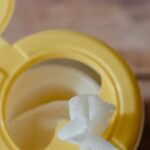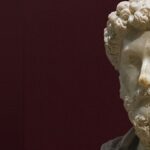Innovative Planning, Level Four: Question-and-Answer-Session. The purpose of this project is to practice taking questions after a presentation.

- I’m here today to talk about travel planning. I spent most of 2020 cooped up inside, I’m dreaming about being able to travel again.
- I’m going to present the basics, then I’ll have a few minutes to answer questions. Feel free to jot down anything you think of and I’ll do my best to give you answers.

- Almost two years ago, my husband and I took our first-ever “just us” vacation to D.C.
- We had 4 full days in town, and in that time did about 10 “official” things, including going to the National Zoo, visiting George Washington’s home Mount Vernon, and seeing the Changing of the Guard at Arlington National Cemetery.
- Besides being a marvelous trip, there was the added bonus of staying under budget, which always makes me happy.

- Wherever you’re going, you probably can’t do all the things you want to do — maybe because you’re not there long enough, or you have budget constraints.
- So you have to figure out what matters most. Is your goal to have a relaxed vacation where not much happens, or would you prefer it to be an educational experience? Do you want to eat your way through every fancy restaurant in town, or see a live performance every night?
- Naming what matters keeps you focused on spending your time and money the way you want. For example, what mattered to me in D.C. was going to multiple museums. I didn’t care about staying in a fancy hotel, so we spent more on tickets and scheduled more time to visit the museums, and booked a cheaper Airbnb further outside the city.

- Your level of planning may differ depending on what matters for your vacation, but it never hurts to have an idea of what you’re going to be doing — if only so you make sure you don’t miss something or blow your budget.
- For example, one thing I wanted to do on our vacation was visit the Holocaust Museum. Turns out that while the museum is always free, you must book tickets in advance during certain times of the year. If I hadn’t done my research we might not have been able to go — and that museum was one of the most impactful parts of our trip.
- If you’re planning a vacation with a packed schedule or events that must happen at certain times, don’t feel like it’s too nerdy to have a spreadsheet. You can store info on location hours, addresses, entrance fees, etc.

- Next it’s time to think about the budget.
- Generally speaking, the longer you’re going to be traveling and the more you want to do, the more you need to save — a day trip to a beach might require no more than lunch money, while a trip to Europe could mean thousands in airfare alone.
- There’s all kinds of advice out there on how to save, so find what works for you and go for it.

- Create a vision board – Make your dream concrete so it’s more likely to happen. It can be clippings from travel magazines, but what I did was create a Pinterest board. That let me pin links to activities and events I was interested in researching.
- Budget-busters – The little things you might not think about, like souvenirs, public transportation passes, and snacks for travel or the hotel room.
- Look for discounts – This could be as simple as Googling around for coupons, or as drastic as changing the time of year you plan to travel.
- Leave room for downtime – This was something I absolutely did NOT do for D.C., and by our last day in town I was in so much pain I could hardly walk. If you’re an over-planning calendar-filler like me, it’s critical to remember to make time for rest.

- That’s it! What questions do you have for me?






